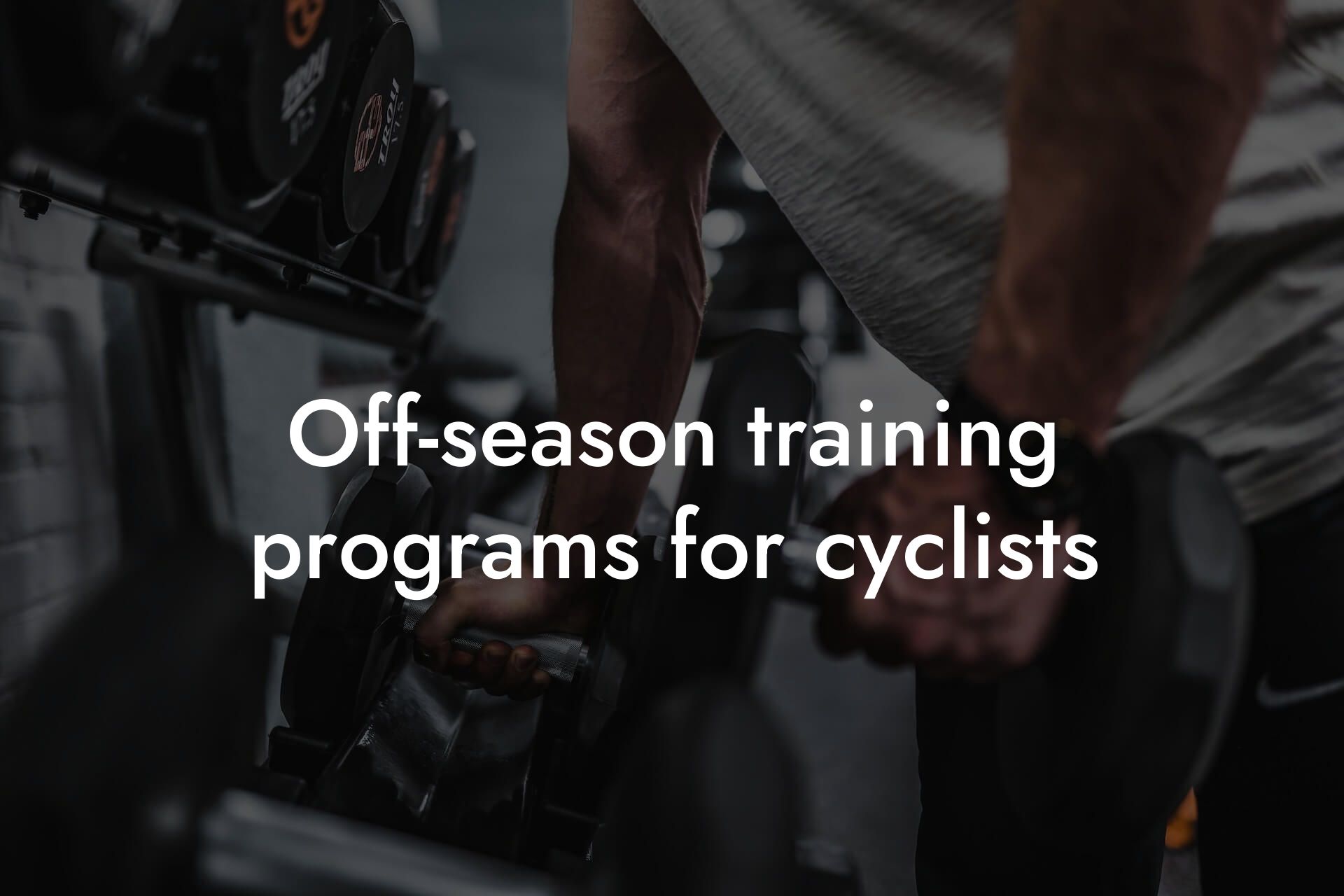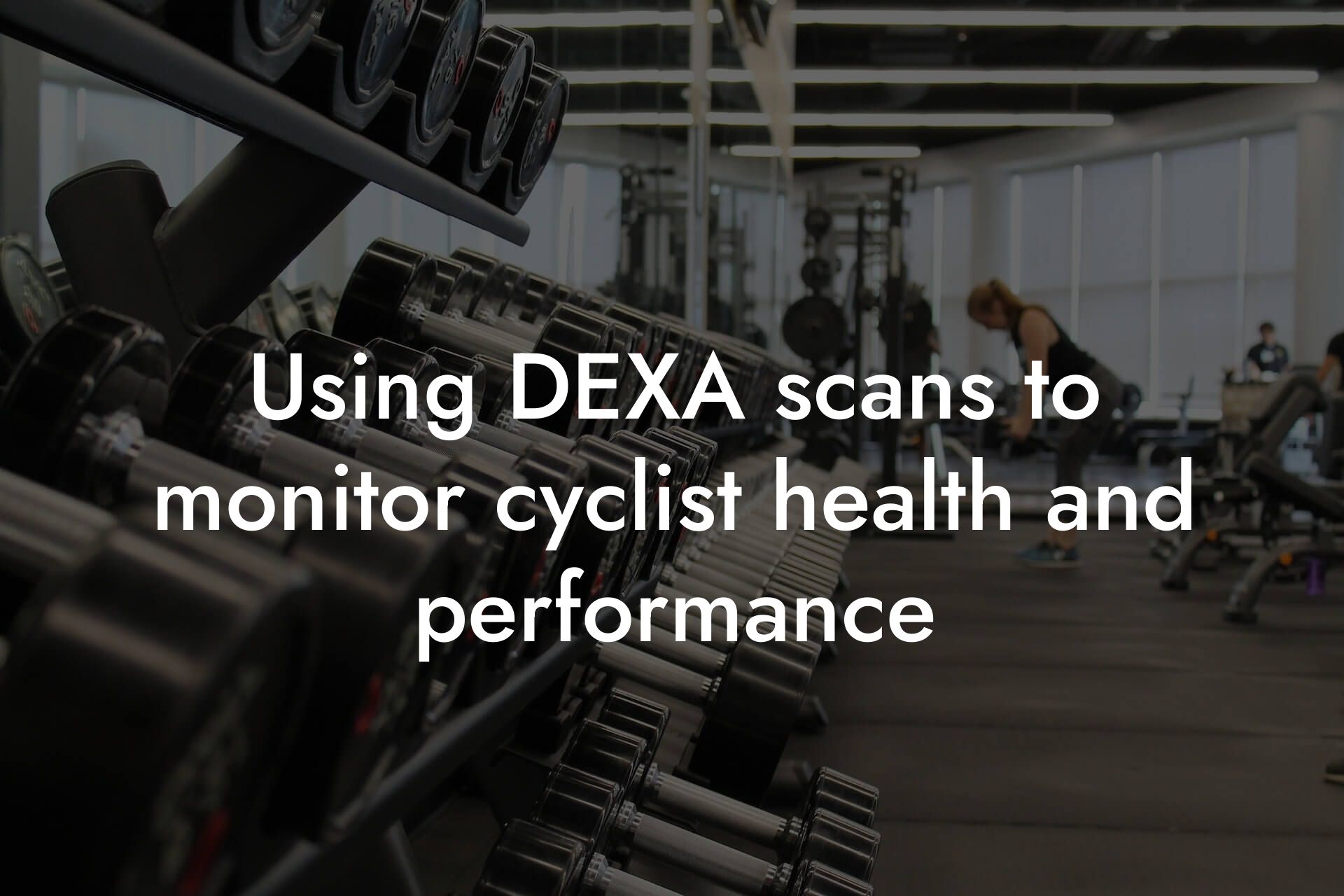As a high-earning professional, you understand the importance of maintaining a healthy and fit physique. Cycling is an excellent way to improve cardiovascular health, increase muscle strength, and boost overall well-being. However, to achieve optimal cycling performance, it's crucial to focus on two critical aspects: hydration and nutrition. In this article, we'll delve into the importance of hydration and nutrition for cycling, and provide you with expert tips to optimize your performance.
Table of Contents
- The Importance of Hydration for Cyclists
- Nutrition for Cyclists: Fueling for Optimal Performance
- Pre-Ride Nutrition: Fueling for Optimal Performance
- During-Ride Nutrition: Fueling for Endurance
- Post-Ride Nutrition: Recovering and Rebuilding
- Hydration and Nutrition for Different Types of Rides
- Common Hydration and Nutrition Mistakes Cyclists Make
- Frequently Asked Questions
The Importance of Hydration for Cyclists
Hydration is essential for cyclists, as even mild dehydration can significantly impact performance. When you're dehydrated, your body's ability to regulate temperature, transport nutrients, and remove waste products is compromised. This can lead to fatigue, decreased endurance, and increased risk of injury. As a cyclist, it's essential to drink plenty of water before, during, and after your ride to maintain optimal hydration levels.
Aim to drink at least 17-20 ounces of water 2-3 hours before your ride, and continue to drink small amounts every 10-15 minutes during your ride. Additionally, make sure to consume electrolyte-rich drinks or snacks to replenish lost salts and minerals. Electrolytes play a crucial role in maintaining proper muscle and nerve function, and deficiencies can lead to muscle cramps, weakness, and fatigue.
Nutrition for Cyclists: Fueling for Optimal Performance
Nutrition is a critical component of optimal cycling performance. A well-balanced diet provides your body with the necessary fuel to power your ride, support muscle function, and aid in recovery. As a cyclist, it's essential to focus on consuming complex carbohydrates, lean protein, and healthy fats.
Complex carbohydrates, such as whole grains, fruits, and vegetables, provide sustained energy and support muscle function. Aim to consume 2-3 grams of complex carbohydrates per kilogram of body weight daily. Lean protein sources, such as lean meats, fish, and eggs, help build and repair muscle tissue. Aim to consume 1.2-1.6 grams of protein per kilogram of body weight daily.
Healthy fats, such as nuts, seeds, and avocados, provide energy and support hormone function. Aim to consume 0.5-1 gram of healthy fats per kilogram of body weight daily. Additionally, make sure to include plenty of fiber-rich foods, such as whole grains, fruits, and vegetables, to support digestive health and reduce inflammation.
Pre-Ride Nutrition: Fueling for Optimal Performance
What you eat before your ride can significantly impact your performance. Aim to consume a balanced meal or snack 1-3 hours before your ride, consisting of complex carbohydrates, lean protein, and healthy fats. Some excellent pre-ride options include:
- Oatmeal with banana and almond butter
- Whole-grain toast with avocado and eggs
- Greek yogurt with berries and honey
Avoid consuming heavy meals or foods high in sugar, salt, and caffeine, as they can cause digestive discomfort and energy crashes during your ride.
During-Ride Nutrition: Fueling for Endurance
During long rides, it's essential to consume snacks or drinks that provide sustained energy and support muscle function. Aim to consume 30-60 grams of carbohydrates per hour, and 10-20 grams of protein per hour. Some excellent during-ride options include:
- Energy gels or chews
- Energy bars
- Dried fruits and nuts
- Electrolyte-rich drinks or tablets
Avoid consuming heavy or greasy foods, as they can cause digestive discomfort and energy crashes during your ride.
Post-Ride Nutrition: Recovering and Rebuilding
After your ride, it's essential to consume a balanced meal or snack that helps your body recover and rebuild. Aim to consume a meal or snack that consists of complex carbohydrates, lean protein, and healthy fats within 30-60 minutes after your ride. Some excellent post-ride options include:
- Chocolate milk and a banana
- Whole-grain wrap with turkey and avocado
- Smoothie bowl with protein powder, banana, and almond milk
This meal or snack helps to replenish energy stores, support muscle repair, and reduce inflammation.
Hydration and Nutrition for Different Types of Rides
Different types of rides require different hydration and nutrition strategies. For example:
For short, high-intensity rides, focus on consuming electrolyte-rich drinks and snacks to replenish lost salts and minerals. For long, endurance rides, focus on consuming complex carbohydrates, lean protein, and healthy fats to provide sustained energy and support muscle function.
For rides in hot and humid weather, focus on consuming plenty of water and electrolyte-rich drinks to replenish lost fluids and electrolytes. For rides in cold weather, focus on consuming warm, electrolyte-rich drinks to help regulate body temperature and support muscle function.
Common Hydration and Nutrition Mistakes Cyclists Make
Even experienced cyclists can make mistakes when it comes to hydration and nutrition. Some common mistakes include:
- Not drinking enough water before, during, and after rides
- Consuming too much sugar or caffeine before rides
- Not consuming enough electrolyte-rich drinks or snacks during rides
- Not eating a balanced meal or snack after rides
By avoiding these common mistakes, you can optimize your hydration and nutrition strategy and achieve peak cycling performance.
Optimizing hydration and nutrition is critical for peak cycling performance. By focusing on consuming complex carbohydrates, lean protein, and healthy fats, and staying hydrated before, during, and after your ride, you can improve your endurance, increase your power output, and reduce your risk of injury. Remember to avoid common mistakes, and tailor your hydration and nutrition strategy to your specific ride type and weather conditions. With the right approach, you can take your cycling performance to the next level and achieve your fitness goals.
Frequently Asked Questions
What is the importance of hydration for cyclists?
Hydration is crucial for cyclists as it helps regulate body temperature, transport nutrients and oxygen to cells, and remove waste products. Even mild dehydration can lead to fatigue, decreased performance, and increased risk of injury. Proper hydration is essential to maintain physical performance and overall health.
How much water should I drink before a ride?
Aim to drink at least 16-20 ounces of water 1-2 hours before a ride to allow for proper hydration and to prevent dehydration during exercise. Additionally, consider your individual sweat rate, climate, and ride intensity to adjust your hydration needs.
What are the signs of dehydration in cyclists?
Common signs of dehydration in cyclists include dark yellow or brown urine, dry mouth, fatigue, dizziness, headaches, and muscle cramps. If you experience any of these symptoms, stop and rehydrate immediately.
Can I drink sports drinks instead of water?
Sports drinks can be beneficial for high-intensity or long-duration rides, but they are not necessary for most cycling activities. Water is sufficient for rides under 60 minutes. However, if you're riding for an extended period or in extreme weather conditions, sports drinks can help replenish electrolytes and maintain hydration.
What are the best foods to eat before a ride?
Opt for complex carbohydrates, lean protein, and healthy fats 1-3 hours before a ride. Examples include oatmeal with banana and almond butter, whole-grain toast with avocado and eggs, or Greek yogurt with berries and honey. Avoid heavy meals, high-fiber foods, and spicy or fatty foods that can cause digestive discomfort during exercise.
What snacks are best for during a ride?
Choose snacks that are easy to digest, high in carbohydrates, and provide a quick energy boost. Examples include energy bars, dried fruits, nuts, and sandwiches. Aim for 30-60 grams of carbohydrates per hour of riding.
How do I determine my individual calorie needs for cycling?
Calculate your calorie needs based on your ride intensity, duration, and body weight. A general estimate is 30-60 calories per kilogram of body weight per hour of riding. For example, a 70kg cyclist riding at moderate intensity for 2 hours would require approximately 1,400-2,100 calories.
What is the role of electrolytes in cycling performance?
Electrolytes, such as sodium, potassium, and magnesium, help regulate fluid balance, nerve function, and muscle contractions. During intense or prolonged exercise, electrolytes are lost through sweat, leading to muscle cramps, fatigue, and decreased performance. Replenish electrolytes through sports drinks, electrolyte tablets, or electrolyte-rich foods like bananas and avocados.
Can I eat too much before a ride?
Yes, eating too much before a ride can lead to digestive discomfort, bloating, and decreased performance. Aim for a balanced meal or snack 1-3 hours before a ride, and avoid heavy meals or large portions.
How does nutrition impact cycling performance?
Nutrition plays a critical role in cycling performance, as it provides energy, supports recovery, and optimizes body composition. A well-planned diet can improve endurance, increase power output, and enhance overall cycling performance.
What are the best recovery foods after a ride?
Focus on consuming carbohydrates and protein within 30-60 minutes after a ride to aid in recovery. Examples include chocolate milk, protein shakes, or meals with lean protein and complex carbohydrates like grilled chicken with sweet potatoes and quinoa.
How often should I eat during a long ride?
Aim to eat every 30-60 minutes during a long ride to maintain energy levels and prevent bonking. Choose snacks that are easy to digest and provide a quick energy boost.
Can I use caffeine to improve cycling performance?
Caffeine can improve cycling performance by increasing alertness, reducing fatigue, and enhancing endurance. However, be cautious of overconsumption, as it can lead to dehydration, jitters, and decreased performance. Consume caffeine in moderation, and avoid it if you're sensitive to its effects.
How does body composition impact cycling performance?
Body composition plays a significant role in cycling performance, as excess body fat can decrease power-to-weight ratio, increase energy expenditure, and impair performance. Maintaining a healthy body composition through a balanced diet and regular exercise can improve cycling performance.
What are the benefits of periodized nutrition for cyclists?
Periodized nutrition involves tailoring your diet to specific training phases to optimize performance. This approach can help improve endurance, increase power output, and enhance recovery. Work with a sports dietitian or coach to develop a personalized periodized nutrition plan.
How can I monitor my hydration levels during a ride?
Monitor your hydration levels by tracking your urine output, color, and frequency. If your urine is dark yellow or you're not urinating frequently, it may be a sign of dehydration. Additionally, pay attention to your body's signs of dehydration, such as dry mouth, fatigue, or dizziness.
What are the consequences of dehydration on cycling performance?
Dehydration can lead to decreased performance, fatigue, and increased risk of injury. Even mild dehydration can impair cognitive function, reduce power output, and increase perceived exertion. Proper hydration is essential to maintain optimal cycling performance.
Can I use hydration tablets or powders during a ride?
Yes, hydration tablets or powders can be a convenient and effective way to replenish electrolytes and maintain hydration during a ride. Look for products that contain essential electrolytes like sodium, potassium, and magnesium.
How does cycling intensity impact nutrition needs?
Cycling intensity significantly impacts nutrition needs, as high-intensity rides require more energy and electrolytes. Adjust your nutrition plan according to your ride intensity, duration, and individual needs to optimize performance.
What are the benefits of a personalized nutrition plan for cyclists?
A personalized nutrition plan can help cyclists optimize their diet for specific training goals, improve performance, and enhance recovery. Work with a sports dietitian or coach to develop a tailored nutrition plan that meets your individual needs.
How can I stay hydrated during a long ride in hot weather?
Stay hydrated during a long ride in hot weather by drinking water or sports drinks regularly, wearing light and breathable clothing, and taking regular breaks in shaded areas. Additionally, consider using cooling products like cooling towels or cooling vests to help regulate body temperature.
What are the best sources of protein for cyclists?
Good sources of protein for cyclists include lean meats like chicken and turkey, fish, eggs, dairy products, legumes, and plant-based protein powders. Aim to consume 1.2-1.6 grams of protein per kilogram of body weight daily to support muscle function and recovery.
How does nutrition impact bone density in cyclists?
Nutrition plays a crucial role in maintaining bone density in cyclists, as adequate calcium and vitamin D intake are essential for bone health. A well-planned diet that includes calcium-rich foods like dairy products, leafy greens, and fortified plant-based milk can help support bone density.
Here are some related articles you might love...
- Off-season training programs for cyclists
- Bone density and injury prevention for cyclists
- Using DEXA scans to monitor cyclist health and performance
- Recovery strategies for cyclists after intense races
- Nutrition tips for endurance during long cycling races
- Strength training for cyclists to improve power output
- The importance of body composition in cycling performance
- Reducing body fat for better power-to-weight ratio in cycling
- The role of muscle mass in cycling endurance
Zak Faulkner
Zak Faulkner is a leading authority in the realm of physical health and body composition analysis, with over 15 years of experience helping professionals optimise their fitness and well-being. As one the experts behind Tano Performance Group, Zak has dedicated his career to providing in-depth, science-backed insights that empower clients to elevate their physical performance and overall health.
With extensive knowledge of DEXA technology, Zak specializes in delivering comprehensive body assessments that offer precise data on body fat, muscle mass, bone density, and overall physique. His expertise enables individuals to make informed decisions and achieve their fitness goals with accuracy and confidence. Zak’s approach is rooted in a deep understanding of human physiology, combined with a passion for helping clients unlock their full potential through personalised strategies.
Over the years, Zak has earned a reputation for his commitment to excellence, precision, and client-focused service. His guidance is trusted by top professionals who demand the best when it comes to their health. Whether advising on fitness programs, nutritional strategies, or long-term wellness plans, Zak Faulkner’s insights are a valuable resource for anyone serious about taking their health and fitness to the next level.
At Tano Performance Group, Zak continues to lead our Content Team revolutionising how professionals approach their physical health, offering unparalleled expertise that drives real results.




